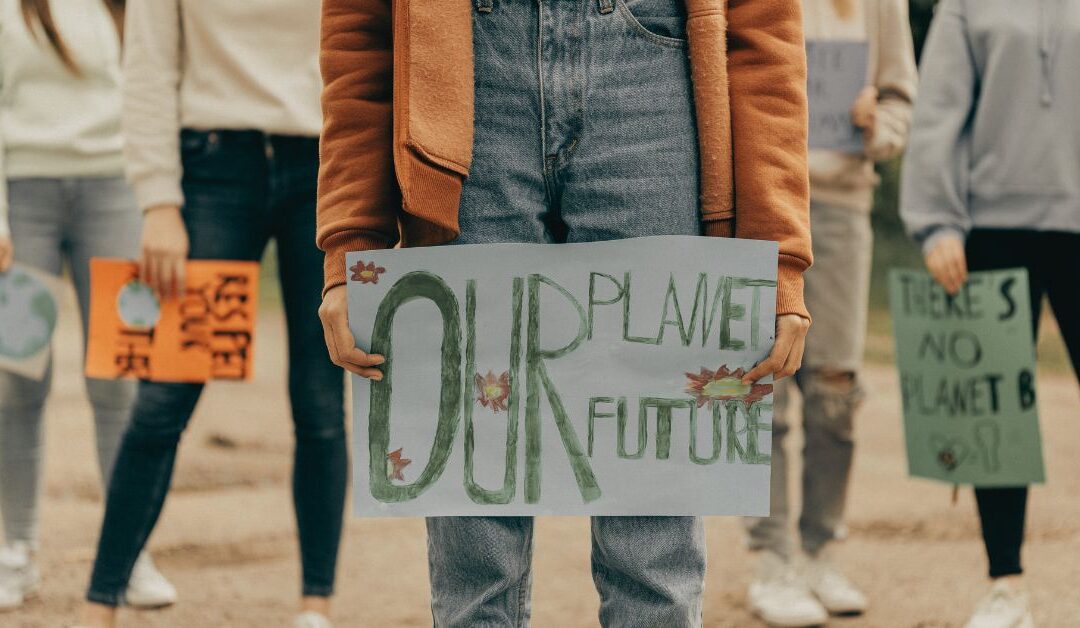The psychological implications of climate change
by Tara Parissay and Arden Henley

GTEC Youth Intern Tara Parissay
As a high school student in Vancouver, the urgency of climate change is an ever-present concern. Recently, as a GTEC Youth Intern, I was introduced to a video interview and an accompanying article titled “Repairing the Social Contract,” published by GTEC and the MHCCA (Mental Health and Climate Change Alliance). These two articles provided profound insights into the anxieties, hopes, and actions of youth regarding climate change from a psychological lens.
Here are three key ideas that stood out to me from both the video and the article.
1. Climate Change Awareness and Urgency
In an interview in the GTEC Reader we met Elisa, a university student navigating questions about climate change. Throughout the interview I noticed the strong emphasis on the critical nature of climate change. Elisa argued that there is a lack of everyday discussion on the implications of climate change. The underlying consensus that there is a gap in communication and education among youth was something I could relate to. This topic aligns with my personal beliefs, as well as with the sentiments of many young individuals who seek greater awareness and engagement from society regarding climate issues. While acknowledging the severity of the issue is crucial, for the future of society, we must also take specific steps to minimize the harmful effects of climate change.
2. Youth Targeted Approach
The article provided an in-depth exploration of the emotional and psychological reactions of young individuals to climate change. By actively engaging youth in the research process through online focus group interviews, the study ensured that our perspectives were heard and valued. This approach fosters a sense of empowerment among us as youth, recognizing our role as stakeholders in shaping responses to the climate crisis. Additionally, the study’s alignment with previous research on youth perceptions of climate change enhances its credibility, reinforcing the validity of our concerns and experiences.
The full report of the study titled Repairing the Social Contract is available on the GTEC website here.
3. Actionable Solutions
Both the video and the article emphasized the importance of collective action in addressing climate change. While acknowledging the severity of the challenges ahead, it was refreshing to see a focus on existing solutions and promising advancements, such as electric vehicles and conservation efforts. Furthermore, the article identified a variety of helpful responses and solutions suggested by participants, ranging from increased education and mental health support to community building and volunteering. These actionable strategies offer a clear path forward for addressing climate-induced distress and promoting resilience among young individuals.
Concluding My Insights
In conclusion, the insights gleaned from the “Repairing the Social Contract” video and article highlight the pressing need for greater awareness, education, and collective action on climate change. As youth, we are eager to contribute to meaningful solutions and demand that our voices be heard in shaping a more sustainable future. Through targeted research, actionable recommendations, and ongoing dialogue, we can work towards repairing the social contract and addressing the challenges posed by climate change.
Consulted Research
Henley, Arden. “Help MHCCA Develop Climate Change Communication Tools.” GTEC Green Technology Education Centre, 16 Apr. 2024, gteccanada.ca/help-develop-climate-change-communication-tools-with-mhcca/. Accessed 2 May 2024.
MCHHA and GTEC. Repairing the Social Contract Undertaking the Co-Design of Climate Distress Services for Young People in British Columbia.
“Repairing the Social Contract.” GTEC Green Technology Education Centre, gteccanada.ca/reader/repairing-the-social-contract/. Accessed 2 May 2024.
About the Author
Tara Parissay is a secondary school student from West Vancouver and GTEC’s newest Youth Intern. Tara has a passion for business and engineering. She has the drive to make a positive impact and is looking forward to gaining valuable experience in the climate change education industry.
See what else we have in the GTEC Blog! Read articles on climate change, sustainability, education, and more!

